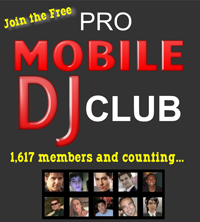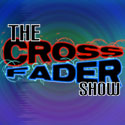by Stu Chisholm
We mobile DJs tend to be entertainment chameleons; we adjust our performances according to the type of event we’re doing and the composition of the audience. Any good entertainer will do this.
There is a notorious old album by comedian Bill Cosby called “8:15 / 12:15,” where he performs the same show adjusted for two different audiences, the first being the “family” audience and the later nighttime show for adults. (Or as Cosby puts it, the “filth show.”)
A DJ might make a similar adjustment when performing for an elementary school dance and then entertaining at a bar later that night. But these types of commonsense adjustments aren’t the only adjustments we make, or are asked to make, are they? This brings us to one of those constantly recurring issues endlessly discussed on online DJ forums: when is your show no longer YOUR show?
Who’s the Boss?
Also recurring among DJs is the joke about how many bosses we have. At a wedding, we have to pay attention to the Bride and Groom, their parents, their wedding coordinator (or the bridesmaid who gets stuck with that job), the hall captain, guests with requests… and all of this regardless of who is actually paying for our services. All of them have a “finger in the pie,” putting conditions on what we play, what we might say, how MUCH we say, what we wear and what we do. The joke is only funny because it’s true.
ProMobileDJ.com readers tend to be the kinds of DJs who invest in themselves. They attend classes and seminars, go to conventions and trade shows, join Toastmasters and even take specialty workshops, such as those offered by Peter Merry or Mark Ferrell.
All of these help to shape our performances. We sometimes go to great lengths to set ourselves apart from other DJs, adapting what we learn to create a unique show. While, like Cosby, we might plan certain adjustments to our show to fit our audience, at what point does client input and imposed conditions go from helpful guidance to gutting the essence of the entertainment experience we’ve painstakingly created?
Obviously the line is going to be a bit blurry, but we can get some clues by once again looking at other types of entertainers.
A paying client might not tell Bill Cosby what jokes to tell or how to tell them. He/she simply knows what Cosby does, and it’s up to the client to decide if his style of entertainment is a good fit for their audience.
A client wealthy enough to hire AC/DC to perform at their event would be shocked and unhappy if they showed up and played Barry Manilow tunes; they get hired to do THEIR show. No, we’re not in the same league — at least not yet — but I think we DJs need to take our cues from the top.
By all means, we must adjust to our audience, yet there is also an obligation on the part of the client to make a good choice.
People in the market for a car buy the one that will fit their garage. An elementary school looking for a comedian would be foolish to hire Denis Leary over Jeff Dunham even if their budget could handle it. Similarly, the onus is on the buyer to find the DJ that fits their event.
We Can’t be All Things to All People
The DJ who devotes the time and energy to “up their game,” develop their own style and fine-tune his/her performance should never be second-guessed by their own client. Information about their tastes, preferences and audience, while gratefully accepted and heeded, should compliment a performer’s show, not trump it. Can you imagine a heart patient giving his surgeon tips on how to do his own bypass?
You may now also be starting to realize that there IS some obligation on the part of the DJ to not represent himself/herself as “all things to all people.” You will occasionally meet that client who, after speaking with them for a while, you realize that your show would be totally wrong for them unless you “adjusted away” just about everything that makes your show unique. That’s the time when, no matter how hard that hole in your calendar might be to fill, you need the courage and honesty to admit to your client that “I don’t think that I’m the DJ for you.”
In those instances, I keep a roster of other entertainers who I respect, but whose shows are very different from my own. The end result is that your clientele you do perform for will be happier, your feedback will be consistently more positive and your referrals will increase.
It’s your client’s Big Day. But it’s YOUR show. Claim it, and you’ll both be happier!
Stu Chisholm – The Complete Disc Jockey
Stu Chisholm of Stu & His Crew Professional Disc Jockey Service in Michigan, has has worked in several areas of the DJ Universe.
He’s been a radio, mobile, club and roller skating rink DJ in the Detroit area since 1979, and done commercial voice-over work, as well.
Stu has been a keynote and featured speaker at DJ trade shows in the U.S., Mexico and Canada. He is the author of the book, “The Complete Disc Jockey” and is a regular columnist with Mobile Beat Magazine.
To contact him, email [email protected]. You can grab Stu’s book at TheCompleteDiscJockey.com.







